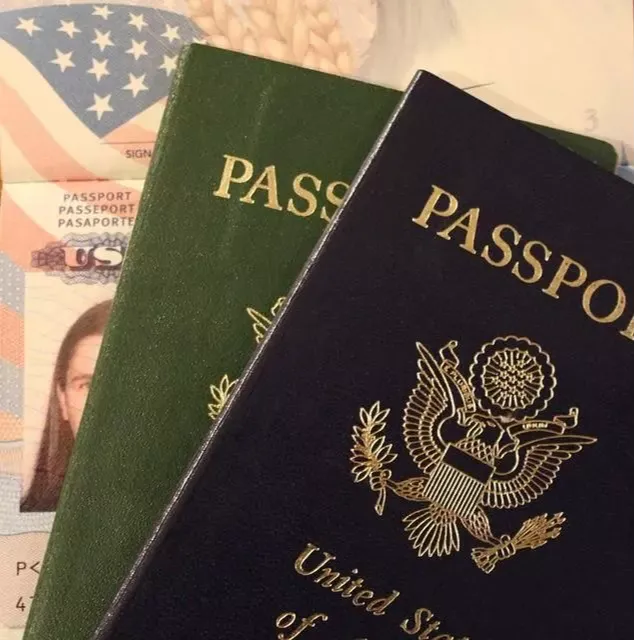What Is an Expatriate or Expat?
Special Report By Edd and Cynthia Staton
Updated May 2024
The word “expatriate” looks like it could refer to a person who has renounced his citizenship. Or to someone who has been exiled from her home country.
What exactly is an expatriate or expat (shortened form)?
Do you spell it expat, ex pat, or ex-pat?
And what is the difference between an expat and an immigrant?
Key Takeaways
-
Expatriates may be professionals sent abroad by their employer or retirees moving to another country.
-
There is a difference between an expatriate and an immigrant.
-
Common misunderstandings exist about what it actually means to move abroad.
-
Expatriates have additional tax considerations when living abroad.
-
Financial advantages and lifestyle enrichment are two main reasons why people choose to expatriate.
Definitions
Let's first look for answers with formal dictionary definitions.
Expatriate: a person who lives outside their native country. Comes from the Latin words ex (out of) and patria (fatherland).
Immigrant: a person who comes to a country to take up permanent residence (Merriam-Webster).
H-m-m-m. Not much help. The only difference between the two words is that an immigrant moves permanently? That technically would mean an immigrant is always an expat, but an expat may or may not be an immigrant depending on length of stay.
Digging Deeper
According to Wikipedia, expatriate “often refers to professionals, skilled workers, or artists taking positions outside their home country, either independently or sent abroad by their employers.”
Investopedia agrees, defining an expatriate (expat) as “a professional or skilled worker in his or her profession,” using companies, universities, and governments as examples of possible employers.
This distinction is further refined by Yvonne McNulty, a senior lecturer at the Singapore University of Social Sciences, who says,
“In addition to living outside one’s home country on a non-permanent basis, an expat must also be legally employed to live and work in the country where they are based. They must also not be a citizen of that country.”
Expat “Privilege”
These sources all focus on employment and an elevated level of expertise as defining characteristics of expats. Yet some find such a view to be discriminatory.
An article in the BBC claims, “The word expat is loaded. It carries many connotations, preconceptions and assumptions about class, education and privilege,” and is “used to describe educated, rich professionals working abroad.”
Going even further, the story states, “The classification matters, because such language can in some cases be used as a political tool or to dehumanise.”
Another source states that expat “can imply that there is less intent to integrate with the local culture.”
Wow. Apparently “immigration” isn’t the only highly charged way to describe people living in another country.
Where Do Retirees Fit In
Wikipedia notes that the term expatriate “is also used for retirees and others who have chosen to live outside their native country.”
But while members of this group may or may not be highly skilled professionals, their purpose in moving to another country certainly isn’t for employment.
And in contrast to the accepted notion that expats reside in another country temporarily, many retirees living abroad have no intention of returning home.
SOLVED: Expat vs. Immigrant
“An expat lives in another country and is not seeking employment there.
An immigrant comes to another country actively seeking employment there.”
Taking all of these ideas into account, here are our simple, hopefully noncontroversial definitions:
An expat lives in another country and is not seeking employment there.
An immigrant comes to another country actively seeking employment there.
In other words, expats either arrive with a job already in hand or the financial wherewithal to live needing no additional income. Immigrants arrive having neither.
A Brief History of Expats
Humans have been moving from one part of the planet to another since prehistoric times, long before the advent of borders and occupations. As civilization dawned, merchants, missionaries, and messengers traveled throughout the known world.
The Age of Discovery beginning in the 15th century greatly expanded the colonization of previous uncharted continents and territories.
The modern idea of expatriation grew from the earliest days of the American revolution.
For the Founding Fathers to justify the Colonies breaking away from Britain, they had to make lawful the notion of leaving one's country of birth.
By the 19th century, travel by steamships and trains made living in foreign countries much more accessible.
Perhaps the most romantic image of expats is the “Lost Generation” in the 1920s, with writers like Ernest Hemingway and F. Scott Fitzgerald lingering at chic Paris cafes.
Air travel gave rise to the Jet Set, wealthy fashionistas who flaunted their indulgent lifestyles in exotic locales. And today there are numerous celebrity expats like Madonna, who has called Portugal her home since 2017, and Johnny Depp, who spends much of his time in France.
“Drawn by the appeal of lowering their cost of living while enjoying a higher standard of living, retirees are flocking to destinations all over the world.”
Types of Expats
As our global economy continues to expand, the total number of expats has soared to 230 million! We defined expats as living in another country, and a) already having a job, or b) not needing one. Let’s take a closer look at both categories.
Have a Job ~
Studies show that 73.6% of expats are individual workers. Multinational companies employ millions in branch offices, as do governments, private organizations and, to a lesser degree, universities.
Some countries have more expats than locals. Expats make up over 88% of Qatar’s entire population!
The rise of remote workers and digital nomads will undoubtedly drive these numbers insanely higher.
It’s predicted that the number of digital nomads will reach over 1 billion by 2035!
Don’t Need One ~
Of the estimated 9 million Americans (excluding military) living outside the U.S. as of 2022 over 750,000 are receiving Social Security benefits according to the SSA. And many more are retired abroad but receiving their monthly check in a stateside bank.
While Americans are receiving Social Security benefits all over the world, Medicare generally provides no coverage overseas.
Many retired expats choose to maintain their Medicare coverage while taking advantage of the cheaper health care in their new country, either paying out of pocket or enrolling in a public or private plan.
Drawn by the appeal of lowering their cost of living while enjoying a higher standard of living, retirees are flocking to destinations all over the world.
Whether lacking sufficient savings or fearful of running out of money, more and more older Americans are embracing expat life as a solid retirement strategy.
“Many people believe that moving to a different country requires you to give up your citizenship. Nothing could be further from the truth.”
Expat Myths
There are a lot of misunderstandings about what it actually means to move abroad. Let’s clear up some common myths.
#1 You have to give up your citizenship
Many people believe that moving to a different country requires you to give up your citizenship. Nothing could be further from the truth.
Simply arriving in your new home country does not automatically make you a citizen there. There is an official process of first applying for permanent residency.
Specifics vary from country to country, but the general requirements are: 1) you need to show proof of recurring income or an investment in a local CD or real estate; 2) you need proof of health insurance; and 3) you must pass a criminal background check.
After an extended period of permanent residency (depending on the country and circumstances, from 3 to 20 years) you can gain citizenship and obtain a second passport.
The United States allows you to have two passports (one from America and one from your new country).
But not all countries (Panama, as an example) permit dual citizenship and some have restrictions.
One definition of expatriate is “to withdraw (oneself) from allegiance to one's country.” And indeed you may choose to renounce your U.S. citizenship altogether once you have citizenship somewhere else.
This extreme step is usually made out of personal conviction or so you will no longer be taxed by the United States, which bases tax on citizenship, not residency. (More on tax obligations later.)
#2 Healthcare outside the U.S. is substandard
In addition to losing citizenship, some people believe becoming an expat means automatically giving up the level of health care they now enjoy in the United States.
They’re wrong. Many countries have world-class health care that is incredibly affordable.
As we noted in Next Avenue, “A recent Health Care Index in CEOWORLD magazine ranked the health care systems of 110 countries, taking into account such factors as the overall quality of facilities and equipment, training and competency of doctors and staff, availability of medicine and cost.
The U.S. ranked #15.
Many of the top-ranked countries have modern hospitals and clinics, state-of-the-art medical equipment, and English-speaking doctors. What’s more, you will likely find services, procedures, and medications costing as little as one-tenth of what you are probably paying now.
#3 Moving to another country is unpatriotic
Some people think that expat is a shortened version of ex-patriot. As in “I no longer support my native country.”
As already discussed, moving from one place to another is part of our human heritage. Our forefathers made a dangerous journey to a new world. Love of one’s country has no bearing on a decision to live somewhere else.
#4 Other countries aren’t safe
The safety issue can easily be put in perspective.
The 2023 Global Peace Index ranks the U.S. No. 131 for safety out of 163 countries, far behind expat favorites like Portugal, Malaysia, Costa Rica, Panama, and our home country Ecuador.
Global Finance lists 134 of the World’s Safest Countries. The United States has dropped all the way to #71.
So yes, there are plenty of perfectly safe places to live in this world.
Tax Considerations For Expats
Filing taxes as a U.S. citizen living at home is hard enough. As an expat it can be even more complicated. To avoid double taxation, consult a professional for advice based on your personal situation.
Expats are required to file annual income tax forms and report their worldwide income. (Note: no filing is required if Social Security is your only reportable source of income.) The filing date for expats is June 15 instead of April 15.
Here is a general overview of tax considerations when living abroad. For further information, IRS links are included below.
Foreign Earned Income Exclusion
The Foreign Earned Income Exclusion (FEIE) allows expats to exclude from their tax returns a certain amount of their foreign income, which is indexed to inflation. For 2023, this amount is $120,000.
In a simplified example, you are in a country that is tax-free and your annual earnings are $150,000. You will only need to pay U.S. federal tax on $150,000 - $120,000 = $30,000.
To qualify for FEIE you must pass one of these tests:
- Physical Presence Test: Be outside the U.S. for 330 full days in a consecutive 12-month period, that begins or ends in the tax year.
- Bona Fide Resident Test: Be a permanent resident in a foreign country and be subject to local income taxes for at least a full tax year.
Additional information on FEIE can be found here.
Foreign Tax Credit
As an expat, you may be subject to taxes in the country where you are living. The Foreign Tax Credit (FTC) is a provision that ensures that expats are not double taxed. FEIE and FTC cannot be claimed on the same tax form.
A professional can determine the best strategy for tax filing based on your entire tax profile.
Foreign Account Tax Compliance Act
The idea behind the Foreign Account Tax Compliance Act (FATCA) was to eliminate tax evasion by American individuals and businesses not reporting activity of offshore accounts.
As a result of this 2010 law, U.S. citizens at home and abroad are required to file annual reports on foreign account holdings above certain thresholds. For an individual living in the States the filing threshold is $50,000; a U.S. citizen living overseas must file if foreign financial assets exceed $200,000. These thresholds double when you are married filing jointly.
Foreign Bank Account Report
The Foreign Bank Account Report (FBAR) is part of the Bank Secrecy Act of 1970, another attempt by the U.S. government to prevent tax evasion.
FBAR requires U.S. citizens to report annually all foreign financial accounts with a combined value of over $10,000 on any day of the calendar year.
“Above all, an expat is a person willing to move beyond the ordinary. Embrace change. Take chances. Pursue dreams.”
Expat Life
As elusive as a standard definition for the word “expat” appears to be, for many people understanding expat life, or more specifically, why anyone would choose to be an expat, is almost incomprehensible.
Leave family and friends?
Live in a different culture with a different language?
Although they are thought of as a homogeneous group, expats differ enormously from each other and have diverse reasons for deciding to leave their home country.
Financial Advantages
Significant financial advantages are part of the appeal.
Investopedia points out, “Expats usually earn more than they would at home, and more than local employees. In addition to salary, businesses sometimes give their expatriate employees benefits such as relocation assistance and housing allowance.”
Combining a low cost of living abroad with U.S. level pay allows digital nomads to bank significant savings for their future.
Retirees are drawn to the financial freedom that comes from being able to enjoy a comfortable lifestyle on a limited budget.
Lifestyle Enrichment
Those who choose to become expats often have a sense of adventure. While recognizing that living in another country is not without challenges, they welcome new experiences and are interested in the idea of exploring a different culture.
They may settle in one place or travel all over the globe.
Digital nomads and retirees can decide not only what part of the world to live but even their ideal location and climate.
In the many places with established expat communities they can, if they desire, quickly make new friends and plug into special interest groups.
Final Thoughts
What is an expatriate or expat?
The most basic answer is it’s someone who temporarily or permanently lives outside of their native country.
It could be an employee who accepts a work assignment in a specific location for a specific period of time.
An entrepreneur who can thrive anywhere in the world with a good Internet connection.
Or a retiree with investment income and/or Social Security benefits.
Having been expats ourselves for over 14 years, we can share that dictionary definitions only scratch the surface of the rich and rewarding experiences offered by living abroad.
Being immersed in a different culture broadens your perspective, challenging you to examine long-held attitudes and beliefs about yourself and others.
You discover hidden strengths. Develop astonishing levels of patience and flexibility.
Become more adventurous.
Learn to enjoy the present moment. And not take yourself so darned seriously.
Above all, an expat is a person willing to move beyond the ordinary. Embrace change. Take chances. Pursue dreams.
Expat life isn’t for everybody. But many with the boldness to live abroad discover it was the best decision they’ve ever made.
Most Americans are concerned about their retirement. What about you?
Say goodbye to your biggest fears with this game-changing strategy!
Edd and Cynthia Staton are recognized experts on retiring abroad and expat life. They have appeared on network television, written hundreds of articles for national and international publications, and are regularly featured in the media including MarketWatch and Next Avenue.
They are award-wining journalists, authors of three Amazon best-selling books, and creators of Retirement Reimagined!, a Master Course providing comprehensive, step-by-step guidance to successfully move abroad.
Visit their website for other Products & Services to help you live your best retirement!










